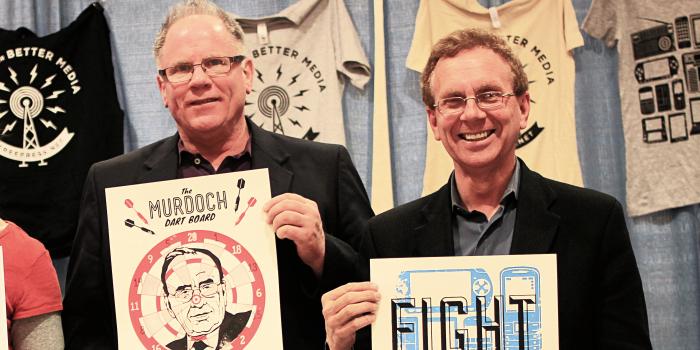Free Press: Legally Dubious Hybrid Proposals Won't Protect Internet Users
WASHINGTON — The Wall Street Journal reported Thursday night that the Federal Communications Commission is redrafting its proposed open Internet rules. The new plan, based on filings from Mozilla and the Center for Democracy and Technology, would reportedly "separate broadband into two distinct services: a retail one, in which consumers would pay broadband providers for Internet access; and a back-end one, in which broadband providers serve as the conduit for websites to distribute content."
Free Press President and CEO Craig Aaron made the follow statement:
"This Frankenstein proposal is no treat for Internet users, and they shouldn't be tricked. No matter how you dress it up, any rules that don’t clearly restore the agency's authority and prevent specialized fast lanes and paid prioritization aren’t real Net Neutrality.
"The good news is that the FCC seems to have abandoned the disastrous proposal it put out in May. But if its new rules look anything like the convoluted proposals submitted by Mozilla and CDT, then they're still the wrong choice. The FCC is supposed to protect our communications, period. Chairman Wheeler can't wave a wand, change the law, and pretend to break the Internet in two. But these schemes suggest just that: dividing the Internet to protect corporations sending information, but not the people receiving it. Such an untested, too-clever-by-half approach is bad law and a bad idea. It will not survive in court, and it is clearly inferior to reclassifying broadband under Title II of the Communications Act.
"The FCC may think they're writing on a blank slate, but all they're going to get is blank stares when this ends up back in court. The FCC has already tried twice before to invent new classifications on the fly instead of clear rules grounded in the law. And twice their efforts have been rejected. This flimsy fabrication will be no different. And this approach will only serve to squander the political support of millions and millions of Americans who have weighed in at the agency asking for strong rules that will stand up in court."
###




